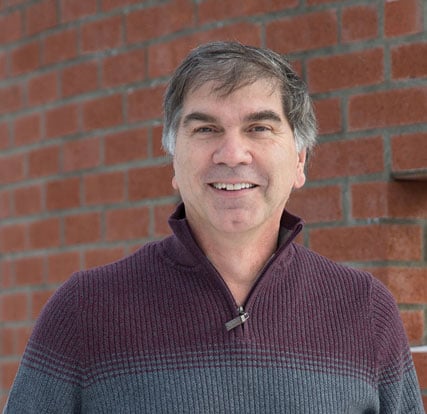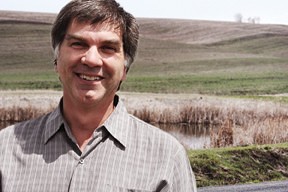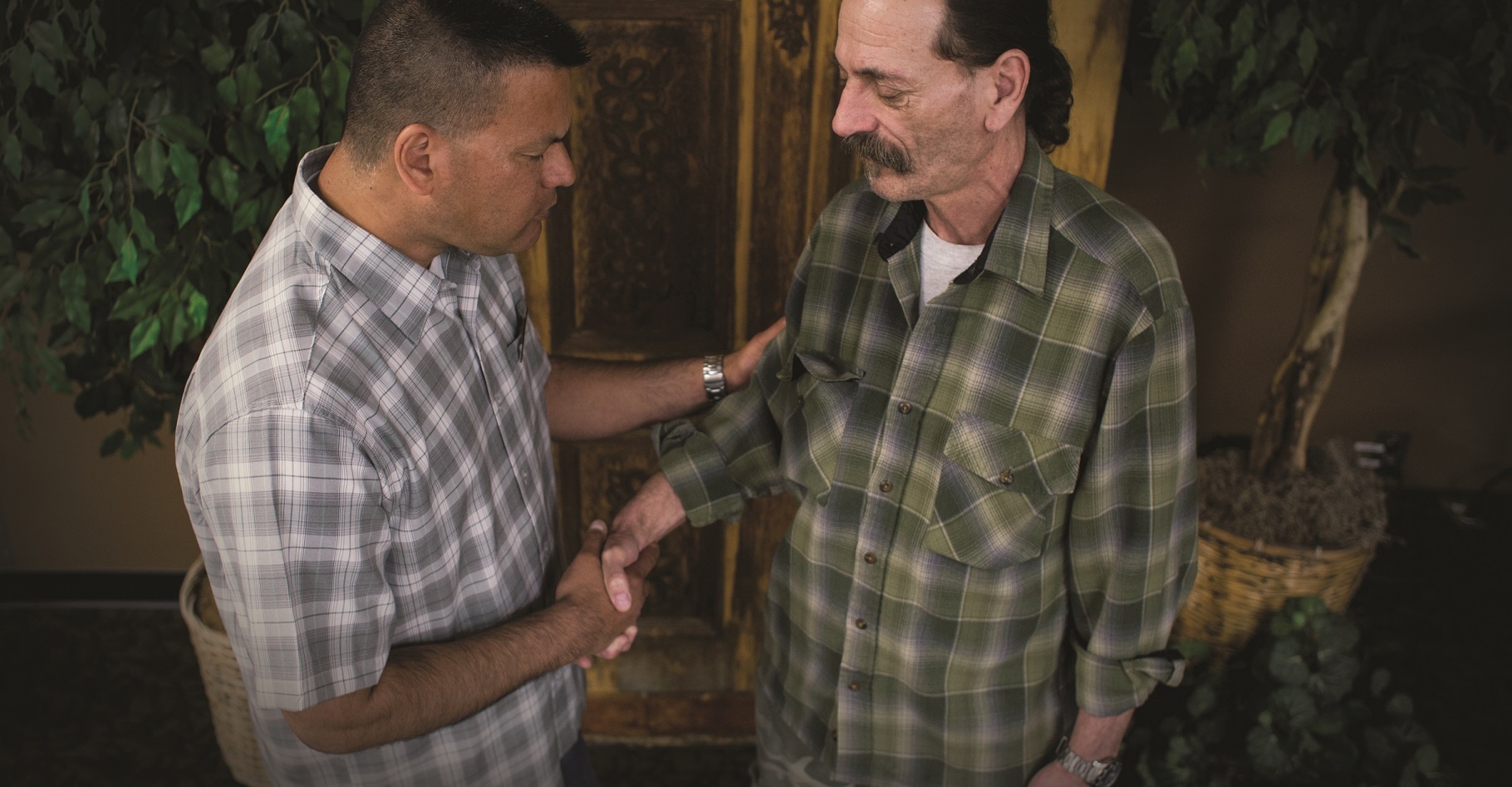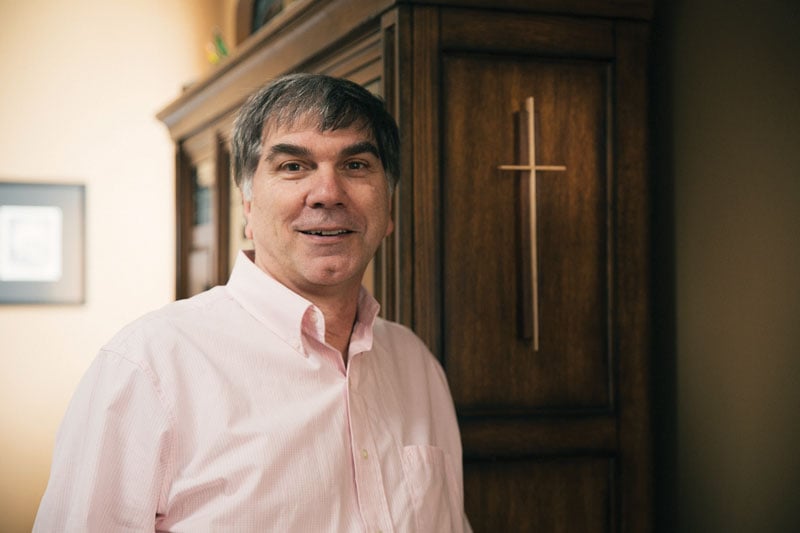2 min read
Gospel-Centered from the Start
“Let us hold unswervingly to the hope we profess, for He Who promised is faithful…Jesus Christ is the same yesterday, today, and forever.” (Hebrews...
2 min read
Phil Altmeyer, Executive Director
:
January 15, 2016
“Addiction” is a strong word. Most of us probably wouldn’t use it in reference to ourselves or we’d use it in a joking manner like, “Yeah, my chocolate addiction is out of control.” Over the course of the past 30 years, however, I’ve come to see addiction in much broader terms and to recognize the commonality between the struggles I face and the struggles faced by the men and women coming through our doors.
 Some people define addiction as a disease, but I think that’s too narrow because either you have it or you don’t, like diabetes or cancer. In her book, The Last Addiction, Sharon Hersh offers up another definition and then expands on it: “Much of the literature about addiction defines it as ‘a state of compulsion and obsession, focusing on one element that will supposedly satisfy.’ This definition is incomplete, however, because it leaves out the heart of addiction. Addiction goes deeper than obsession and compulsion. It is worship. It is giving my heart and soul over to something that I believe will ease my pain and provide an outlet for my fury at being out of control in a world that hurts me, scares me or leaves me alone.”
Some people define addiction as a disease, but I think that’s too narrow because either you have it or you don’t, like diabetes or cancer. In her book, The Last Addiction, Sharon Hersh offers up another definition and then expands on it: “Much of the literature about addiction defines it as ‘a state of compulsion and obsession, focusing on one element that will supposedly satisfy.’ This definition is incomplete, however, because it leaves out the heart of addiction. Addiction goes deeper than obsession and compulsion. It is worship. It is giving my heart and soul over to something that I believe will ease my pain and provide an outlet for my fury at being out of control in a world that hurts me, scares me or leaves me alone.”
Who hasn’t been angry about what we can’t control? Who hasn’t been hurt or scared and wanted to turn to someone/something other than God to ease the pain? Who hasn’t sought happiness in a book or a movie, work or a tub of ice cream? Maybe not all the time. Maybe we’re not obsessed. But you can see the attraction…and the connection to the people we would traditionally label as “addicts.”
We are all tempted to seek pleasure, joy and relief from pain in behaviors and objects that cannot ultimately satisfy, and their failure to satisfy only drives us either to try harder or to seek escape. To paraphrase Hersh, my addiction makes everything better until it makes everything worse.
The other way in which our struggles mirror those of addicts is the end result: shame. When we indulge in fantasy or overeat or work excessive hours, we usually end up feeling worse about ourselves, not better. And to silence that shame, we delve deeper into our addiction. It’s a never-ending cycle of destruction, and James shows us the way out: “Confess your [struggles/addictions/mistakes] to each other and pray for each other, so that you may be healed.”
Friends, as you consider making New Year’s resolutions, let me suggest something of a little different nature: Find someone to whom you can confess and be completely honest, someone who will hold you accountable without judging you.
Put another way, in 2016, I’m hoping you will build for yourself the same kind of environment we are working to create for our guests. You recognize what wounded people need and have come alongside UGM to wrap them in safe-and-healing, loving environments. Consider doing the same for yourself.

2 min read
“Let us hold unswervingly to the hope we profess, for He Who promised is faithful…Jesus Christ is the same yesterday, today, and forever.” (Hebrews...

9 min read
To celebrate 75 years of serving the Inland Northwest, we are spending the year remembering our history and the faithfulness that built us and...

2 min read
In 2026, Union Gospel Mission Inland Northwest is approaching our 75th Anniversary! This is a milestone that invites gratitude and reflection, and...
 Read More
Read More

For the majority of people coming through the doors of the Union Gospel Mission, the most pressing issues are shelter from the cold, a warm meal, the...

What better phrase to describe one’s life than the one God used to describe David, “a man after my own heart.” What do we know about God’s heart? How...